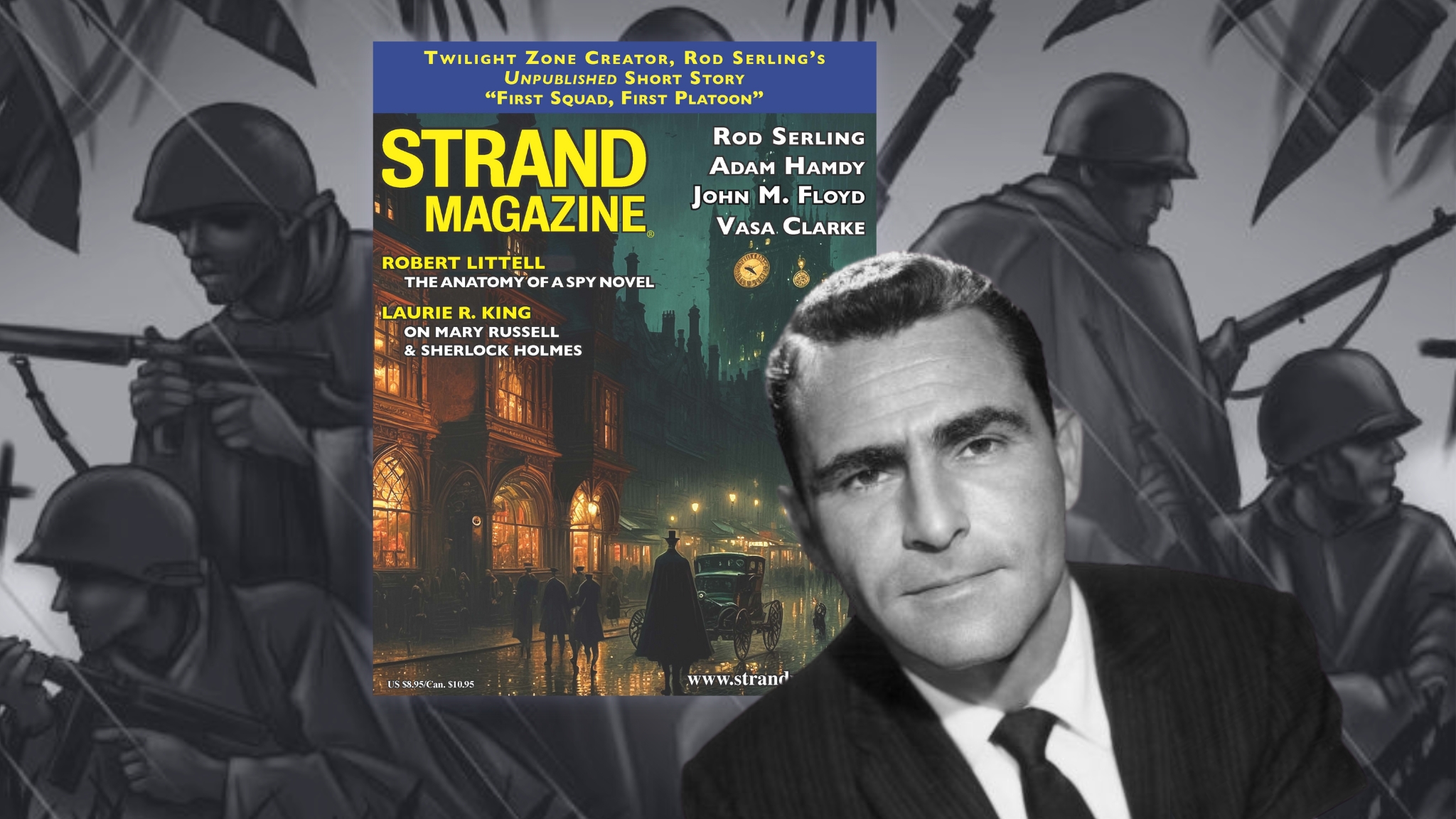Rod Serling, best known as the creator of The Twilight Zone, authored a short story when he was in his early twenties. “First Squad, First Platoon”, published for the first time by Strand Magazine, was uncovered thanks to writer Amy Boyle Johnston, who discovered it “in a folder of [Serling’s] early writings among a collection of his college papers archived at the University of Wisconsin.”
The story is inspired by Serling’s time fighting with the 511th Airborne in the Philippines during World War II, reflecting on the horrific combat and traumatic loss he faced. In five chapters, plus an epilogue, “First Squad, First Platoon” follows a squad of men as they wrestle with war, faith, hope, hunger, mortality, injury, and the harrowing reality of going home once again.
With touching forewards from Rod Serling’s daughters, Jodi and Ann, readers are given a closer look at the man — and the father — behind the words.
“My father’s experiences during World War II in the Philippines opened up dark horizons of terror for him — lost friendships, the loss of his dad, his own mortality. There is no doubt that those experiences provided a pathway into his further writing which, while somewhat cathartic, is also filled with gut-wrenching memories of the war and the fear he and his comrades felt,” notes Jodi.
This bold, realistic approach to fiction is seen throughout Serling’s entire career. The writer was not one to shy away from tackling racism, gender roles, current events, politics, and war.
“Serling’s strong sense of moral justice and his experiences during World War II informed much of his writing, which he used to craft entertaining, thought-provoking teleplays and screenplays. Early in his career, he frequently butted heads with censors and sponsors, who pushed him to water down many of his scripts that tackled controversial issues,” notes Andrew Gulli, Managing Editor of Strand Magazine.
In the dedication of “First Squad, First Platoon”, Rod Serling writes to his daughters about the importance of telling war stories and facing reality, no matter how painful. “…Human beings don’t like to remember unpleasant things. They gird themselves with the armor of wishful thinking, protect themselves with a shield of impenetrable optimism, and, with few exceptions, seem to accomplish their ‘forgetting’ quite admirably.”
There is no doubt that “First Squad, First Platoon” is a timely, much-needed reflection on our relationship with war and our penchant for looking away from atrocity and violence. Rod Serling’s writing complements the unflinching war commentary made by other well-known media, such as All Quiet on the Western Front, M.A.S.H, The Things They Carried, and of course, The Twilight Zone.
Read “First Squad, First Platoon” in its entirety in Strand Magazine.




